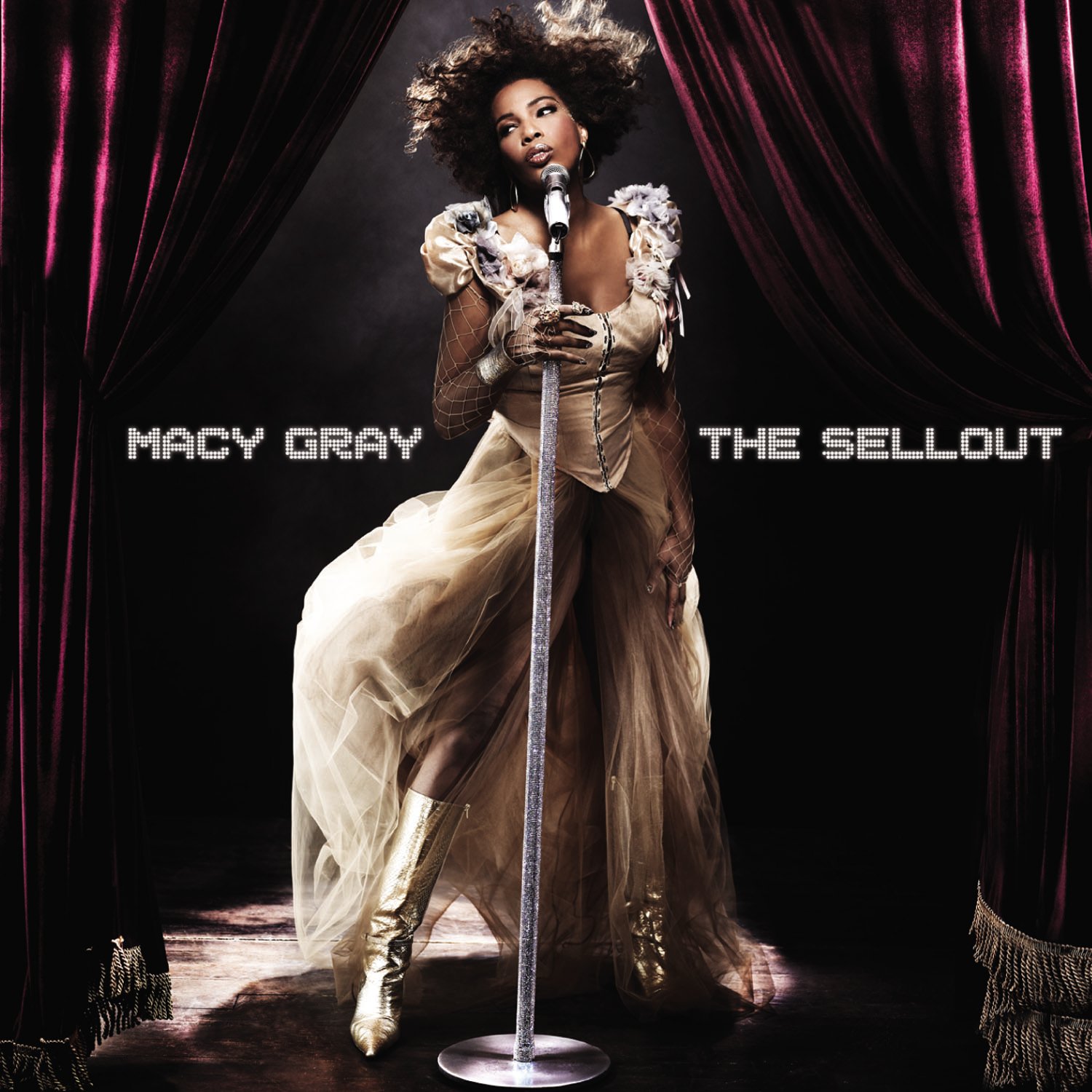![]() Macy Gray’s lyrics tend to veer between homey love and sexual dementia. Perhaps on the recommendation of her doctor, she’s taken a break from songwriting this year to deliver two covers albums. The first, Covered, found Gray reinterpreting the likes of Radiohead, Yeah Yeah Yeahs, and Arcade Fire. The second is altogether more ambitious: a song-for-song remake of Stevie Wonder’s Talking Book on the 40th anniversary of that album, one of the singer-songwriter’s greatest recordings. The first step here is to marvel at the audacity of Gray’s undertaking, the second to admire its earnestness (she dubs it a “love letter to Stevie”), and the third to note how gracefully she pulls it off. Rarely has Gray’s laryngitic delivery soared like this or manifested such a sense for the well-considered phrase. You don’t need to know Talking Book chapter-and-verse to get it, either; there’s plenty to love here even without stooping to the messy business of comparison.
Macy Gray’s lyrics tend to veer between homey love and sexual dementia. Perhaps on the recommendation of her doctor, she’s taken a break from songwriting this year to deliver two covers albums. The first, Covered, found Gray reinterpreting the likes of Radiohead, Yeah Yeah Yeahs, and Arcade Fire. The second is altogether more ambitious: a song-for-song remake of Stevie Wonder’s Talking Book on the 40th anniversary of that album, one of the singer-songwriter’s greatest recordings. The first step here is to marvel at the audacity of Gray’s undertaking, the second to admire its earnestness (she dubs it a “love letter to Stevie”), and the third to note how gracefully she pulls it off. Rarely has Gray’s laryngitic delivery soared like this or manifested such a sense for the well-considered phrase. You don’t need to know Talking Book chapter-and-verse to get it, either; there’s plenty to love here even without stooping to the messy business of comparison.
Gray’s occasional recourse to coquettish withdrawal, like a youngster with strep throat, is valuable on a number of tracks. “Blame It on the Sun” finds the singer working her way through Wonder’s progressive layers of deferred responsibility before finding that the buck stops with her, while on “Tuesday Heartbreak,” Gray’s emotional distance gives way to unrepressed vocal engagement over Stax-style horns. On most songs, Gray transcends the stultifying strictures of neo-soul with a soundscape variously derived from Philly soul, ‘70s psychedelic rock, and George Clinton’s early bands. Nor is the singer leery of doubling or tripling her voice on a single track, an effective technique on an almost-concept album about romantic self-delusion and especially poignant from the avowedly bipolar singer. When Gray cocoons herself in the mix, with a sparing use of echo, she hasn’t gone into hiding; she’s really just waiting to bust loose.
The one track that actually improves on the original is “Maybe Your Baby,” a song of self-excoriation and paranoiac jealousy. Gray’s rendition is a funky, drugged-out wail over the murk of distorted clavs and a guitar heavy on the wah pedal (think Maggot Brain-era Funkadelic). On “Superstition,” Gray wisely recognizes the impossibility of beating Wonder’s classic 4/4 rocker and offers instead a spooky, voodoo 6/8 shuffle, sounding like Cee-Lo on one of his more outré and sinister kicks. Eventually, a fuzzed guitar and Hammond organ invoke a variation on the original’s indelible hook. The arrangement is a sly nod, and a fitting emblem for Gray’s un-lazy approach throughout.
And about those neo-soul strictures: They assert themselves now and again and should be considered the price of admission. “Sunshine of My Life” is a good track, but its almost-samba is too smooth by half, even if its sentiment remains unobscured. The one dud, “Lookin’ for Another Pure Love,” is equally edgeless, like a Brand New Heavies ballad that never quite made it. But remember: Gray’s debut album didn’t sell seven million copies because it was a bad disc to fuck to. Count it as an achievement that, given so many opportunities to fall back on John Legend-style gloop, Gray instead finds her way to a muscular chorus on “You and I (We Can Conquer the World),” a pure-pop highlight, and gives new life to “I Believe (When I Fall In Love It Will Be Forever),” which begins as a cautious affirmation of faith and ends with a joyous rave-up that unites pop and funk in a way that would make Stevie proud. Even the 1984-inspired “Big Brother,” with its uptempo hypnosis and lyrics that use Orwell to address the politics of the ghetto, boasts an energy that stems from something more than racial politics.
On this last track, Gray stresses the notes of aspiration, offering a few offhand exhortations to her band (“Okay, here we go,” and so on) and demonstrating a facility in the upper range that hasn’t always earned her plaudits. Gray’s delivery isn’t for everyone (hence her sinusoidal career arc), but on Talking Book it’s fascinating without fail. And if certain songs take a verse or two for the backbeat to catch up with Gray, don’t hold it against her—just blame it on the sun.
Since 2001, we've brought you uncompromising, candid takes on the world of film, music, television, video games, theater, and more. Independently owned and operated publications like Slant have been hit hard in recent years, but we’re committed to keeping our content free and accessible—meaning no paywalls or fees.
If you like what we do, please consider subscribing to our Patreon or making a donation.




